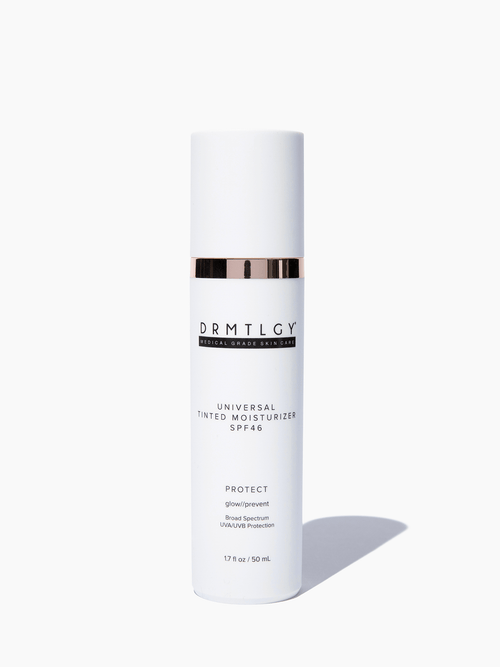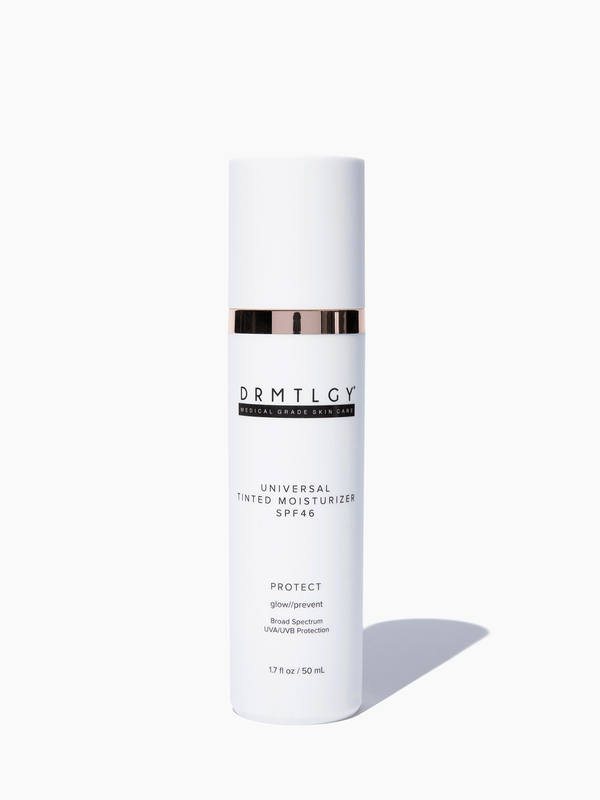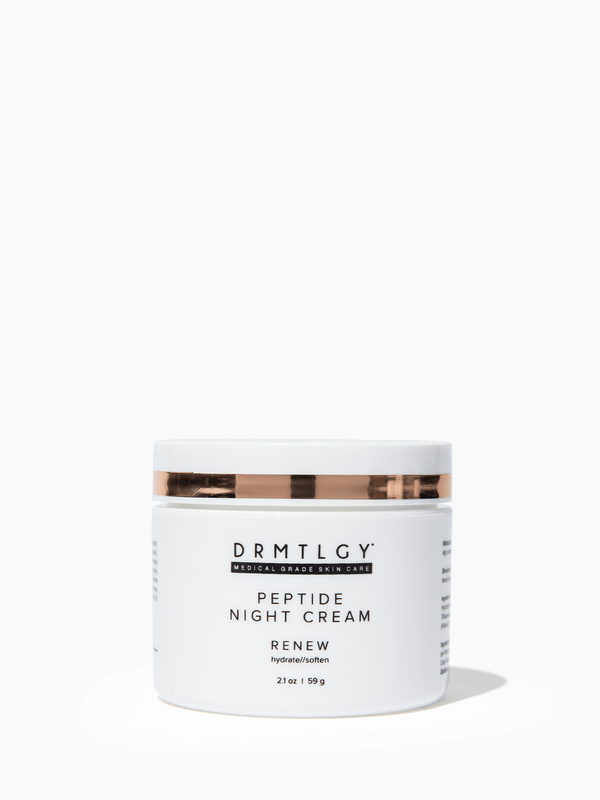You may do your skincare routine consistently day after day, but neglecting this one thing can keep you from the skin you dream of.
It’s easy to underestimate your diet’s role in your skin health.
Your skin is the largest organ in your body. And just like any other organ, it needs a variety of vitamins, minerals, and nutrients to function at its best.
Unfortunately, your beauty regimen can’t provide everything your skin needs. Your body depends on your diet to fill in these missing elements.
A well-rounded anti-aging diet can be your secret weapon for achieving flawless skin. But on the flip side, this also means that unhealthy eating habits cause your skin to age faster too.
In this blog post, we’ll cover how diet affects your skin health, some foods to eat more of, and a few you’ll want to avoid.
How Does Diet Affect Your Skin?
Your skin uses the nutrients from the food you eat to maintain and repair itself. Think of these molecules as building blocks that get distributed all over your body to help your cells do their jobs.
The food you eat determines how much of these building blocks your body is able to use. When you get enough of them, you can expect to see healthy skin.
There’s just one problem.
Your skin is one of the last organs to get these nutrients. And because they have to be divided between so many body parts, a lack of healthy food in your diet means that there won’t be anything left for your skin.
That’s why it’s important to eat the right kinds of foods in the right amount.
By eating a wide range of nutrient-rich foods, like the ones in the next section, you can maintain healthy skin and prevent premature skin aging.

Anti-Aging Foods to Fit into Your Diet
Your skin needs a variety of nutrients for optimal skin health. Eating well-rounded meals and the right supplements ensures that you don’t miss out on any of them.
You’ll also notice that many healthy foods offer multiple benefits. Walnuts, for example, are rich in antioxidants and omega-3s. By “double-dipping” with superfoods rich in vitamins and minerals, you can increase your nutrient intake without buying the entire produce aisle.
Vitamin C
You can find this antioxidant in some of your favorite skincare products, but you gain a lot from eating vitamin C-rich foods too.
Free radicals can cause dark spots, uneven tone, dull skin, and even premature wrinkles. Vitamin C fights the damage caused by these molecules, but that’s not all. It helps to regulate the production of collagen too, which helps skin cells heal and repair themselves.
Up your daily intake by taking a daily supplement or reaching for one of these fruits and vegetables:
- Oranges, papayas, strawberries, apples
- Broccoli, cauliflower
- Spinach and other leafy greens
- Tomatoes
Other antioxidants
While your trusty antioxidant serums fight free radicals from the outside, support it with a diet rich in antioxidants too.
A 2010 study found that plant-based foods contain more antioxidants than animal-based foods, with these surprising contenders boasting the highest levels of them:
- Beverages: espresso, coffee, red wine
- Grains and nuts: walnuts, pecans, sunflower seeds
- Common fruits and vegetables: apples, artichokes, blueberries, plums
Essential fatty acids
Essential fatty acids, like omega-3 and omega-6, are “essential” because your body can’t make them on its own. The only way to get them is through your diet.
But why do you need them in the first place?
Well, these molecules are responsible for creating and maintaining healthy cell membranes. These important structures assist the transport of nutrients and waste in and out of each cell, helping your body run at optimal health.
We get much of our daily omega-6 needs from plant-based oils, grains, eggs, and chicken, but American diets typically lack omega-3s. This imbalance can cause skin inflammation, which leads to skin aging.
However, a study published by Lipids in Health and Disease found that people with omega-3-rich seafood in their diets had a lower rate of acne and breakouts -- all symptoms of inflammation.
So to increase your daily intake of omega-3s, eat more salmon, seafood, walnuts, canola oil, and flaxseed oil.
Water
Water doesn’t count as a food, but it still plays an important role in the health of your skin. Why? For starters, H2O makes up 64% of it.
Drinking the right amount of water every day also helps your body get rid of waste and toxins more effectively. But how much water is enough?
Every person is different. To find out how much you need, divide your body weight in pounds by two. The number you get is how many ounces of water you should drink daily.
This number can change depending on your lifestyle too. For example, if you do intense workouts regularly or sweat a lot in the summer, you’ll need to drink more than the suggested amount.
What Foods Should You Avoid for Clear Skin?
Refined carbs, processed flour, and sweets
You may have discovered that overindulging on your guilty pleasure snacks may have caused you to break out a few days later. The most likely cause? Sugar.
Many processed foods rank high on the glycemic index (GI), which ranks how different foods affect your blood sugar levels.
Your body turns carbohydrates into a sugar called glucose, and too much of it can cause your blood sugar levels to spike. When this happens, you experience inflammation throughout your body as well as an increase in sebum production.
These two factors create the perfect storm for acne, especially for those who are already acne-prone. Inflammation is also linked to skin aging, as well as age-related diseases like osteoporosis, Alzheimer’s disease, and type II diabetes.
Dairy products
Much of the milk produced in the United States come from pregnant cows, and the hormones in the milk can increase sebum production as well. On top of that, dairy can cause or exacerbate skin inflammation conditions like acne and eczema.
As we talked about in the previous section, the inflammation caused by eating or drinking too much dairy can lead to premature skin aging.
Fried and oily foods
You’ve probably heard of dozens of reasons to limit your fast food intake: obesity, heart disease, cancer, diabetes, the list goes on.
But the effects of deep-fried, oily foods don’t stop there. A fast food-heavy diet can creep up on you in unexpected ways too.
Frying food at high temperatures creates free radicals. These molecules cause skin damage at the cellular level and ages your skin faster.
And if that wasn’t enough, fast food usually contains large amounts of salt, which draws out water from your cells. This dehydrates them and can make any fine lines or wrinkles on your face more prominent.
Makes you rethink your fast food cravings a bit, doesn’t it?
Keep in mind that food is just one component out of many required for healthy skin.
For optimal skin health, also consider factors like your:
- Lifestyle choices
- Sleeping habits
- Stress levels
- Medications
- Environment
Every body is different, so what causes inflammation and other skin issues for you may not affect someone else.
Talk to your doctor about your health goals and diet before you start taking any new supplements, since some of them can change the effects of certain medications. And if you’re having skin issues that aren’t improved by a change in your skincare routine or diet, bring that up to them as well.
Separately, a balanced diet and an effective anti-aging regimen improve skin health in steady, incremental ways. But when you use them together to address your skin’s needs and concerns, you multiply the effects of both.
Want to build your own anti-aging routine? Read this blog post featuring eight tips to help you get started.
References
Nutrition Journal, 2010, Volume 9, Issue 3
Lipids in Health and Disease, 2008, Volume 7, Issue 36
The Journal of Clinical and Aesthetic Dermatology, July 2014, Volume 7, Issue 7, pages 46-51
Cell Transplantation, May 2018, Volume 27, Issue 5, pages 729-738
Pharmacognosy Reviews, July-December 2010, Volume 4, Issue 8, pages 118-126















